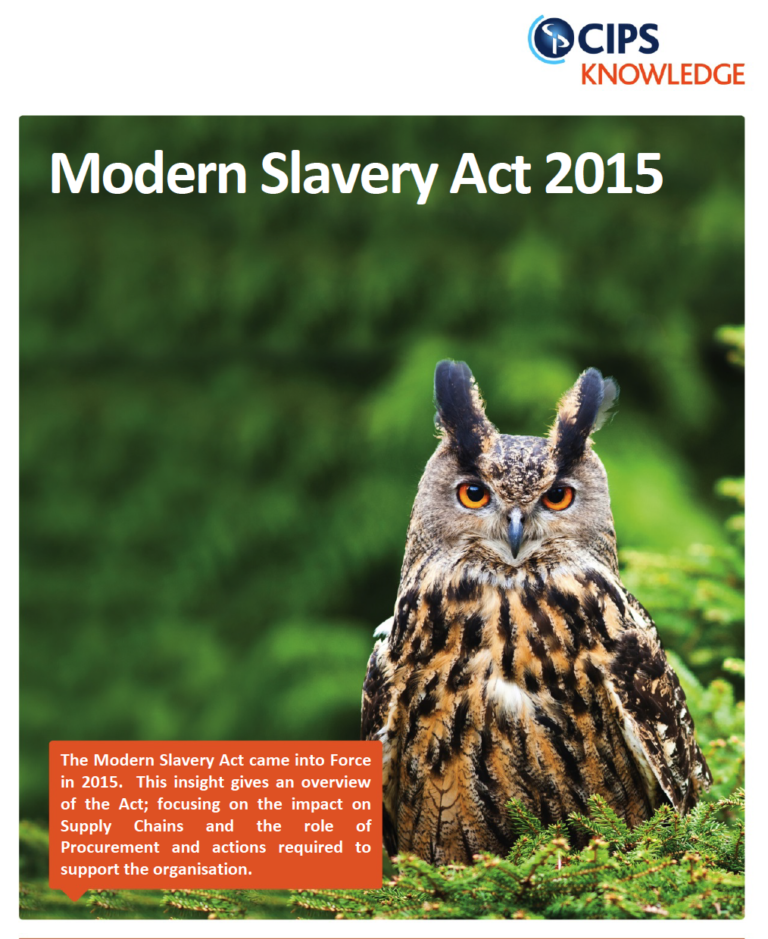UK Modern Slavery Act 2015
Modern Slavery Act 2015 2015 CHAPTER 30 An Act to make provision about slavery, servitude and forced or compulsory labour and about human trafficking, including provision for the protection of victims; to make provision for an Independent Anti-slavery Commissioner; and...

